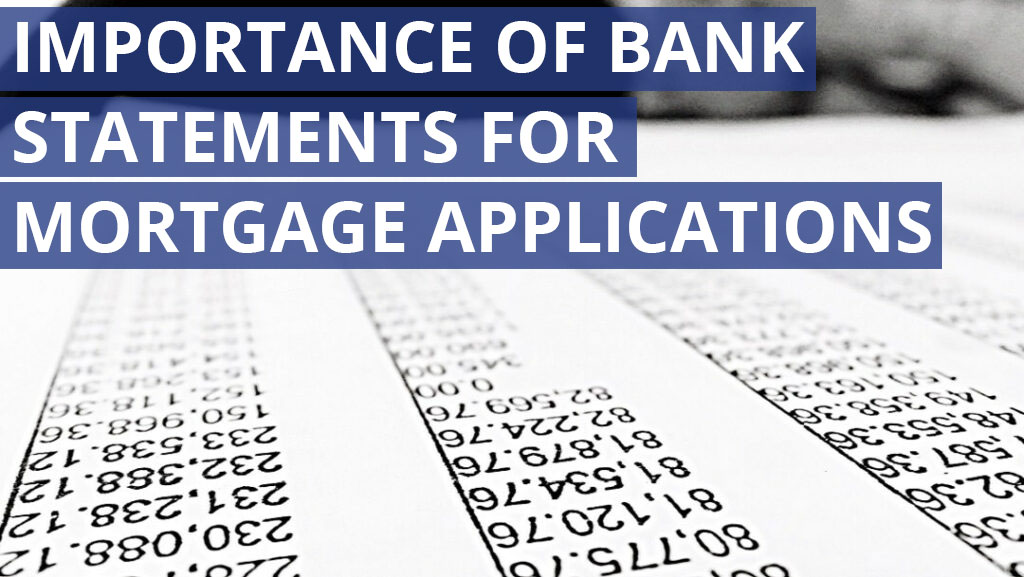When you apply for a home loan, you find yourself combing through a lot of financial documentation—tax returns, pay stubs, bank statements, and the like. But why all the scrutiny? The short answer is that mortgage lenders have strict standards for lending money because they aren’t out to lose money. They want to be sure that any payee will not default on their home loan because of a lack of funds.
While lenders are careful about how they lend money for their self-interest, this caution is beneficial to the home buyer as well. A buyer doesn’t want to lose their house because of any miscalculation in available funds.
Key takeaways
- Mortgage lenders need bank statements to verify regular income, enough funds, and legitimate sources.
- Lenders examine statements for overdrafts, bounced checks, inconsistencies, and seasoning of income.
- Lenders verify statements, including deposits and gifted money, using their own process.
- Prepare all required documentation, avoid drastic fund changes, and spend wisely to improve mortgage approval chances.
Why do mortgage lenders want bank statements?
Bank statements are an important piece of accessible assets. A bank statement is a monthly (or sometimes quarterly) summary of your banking activity. Even with other documentation, a lender will want to analyze this information to determine several things. They want to know that:
- you have a regular income that comes from a known source
- you have enough available for at least a few months of mortgage payment
- the money you have has been building for a period and not just a recent deposit
These markers indicate that the money in your account is not laundered money or from a fraudulent source. It also shows that the buyer is not using another loan to qualify for the mortgage.
Mortgage lenders require bank statements to be provided over a period of time. They will scrutinize these documents to ensure that the potential payee is a good risk and will be able to make prompt and regular payments on their home loan.
The twelve-month bank statement will be examined for “sourced and seasoned” income, which refers to monies from legitimate sources and have been present for a period of time. This may be required if there are red flags in the sixty-day bank statement.
A sixty-day bank statement is the standard period examined. Lenders will make sure that there are no overdrafts or bounced checks and that the money looks good. Even a five-dollar overdraft can disqualify an applicant, depending on the lender.
How do lenders verify bank statements for mortgages?
Each mortgage lender has its own process for document verification. Some work with physical documents, while some will manage them electronically. Expect that your lender will follow up with your bank to validate the statements after you’ve provided them.
They will check the account for what is called “proof of deposit.” This is a determination that enough money has been deposited or has accumulated in the account to cover the property’s down payment the applicant wishes to purchase.
If you have received a gift of money from a family member to help qualify for a mortgage, realize that this will also be scrutinized. This gifted money for a down payment must be thoroughly documented through transferral of funds, typically with a statement or withdrawal and deposit slips. Remember, large amounts quickly deposited cause red flags.
Things lenders look for from your bank statements:
- “Proof of deposit” (enough funds for the down payment on the desired home)
- Sufficient funds for the home
- Consistency of funds (aka “seasoned” income)
- Funds are from known sources (aka “sourced” income)
Things that shouldn’t be in your bank statements
- Bounced checks
- Overdraft (even one can disqualify you from some lenders)
- Large undocumented deposits
- Regular payments with irregular activities
Can you get a loan without a bank statement?
While some mortgages may allow you to apply without W2s or pay stubs, bank statements are always required by mortgage lenders. These companies lend large amounts of money to individuals, and they must be sure that each one is a good risk that won’t default on the loan. They must have a full financial picture to ensure that their investment is safe, and bank statements are the best way to determine this.
Understanding that the investigation of bank statements will be a part of the loan application process, take great care when getting ready to apply for a mortgage that your financial house is in order.
Have all required documentation gathered and ready to share with your lender. Know the cost of your “dream home”, and be sure that you have the money to cover the down payment, and to easily pay the monthly mortgage payment. Don’t make any drastic changes to your funds, and be sure to document any gifts you may receive from generous family members. Be very careful to spend wisely, and ensure that there are no overdrafts on your bank account.
Homeownership is a major and important step in life. Approach it with appropriate reverence, and understand that lenders are laser-focused on their own interests.
Although each lender is different in their qualifications, don’t expect lenience. You are an investment to them, and with careful planning, you can be a good risk and able to make your own investment in turn.
Reach out to us today!
Are you ready to make the dream of homeownership a reality? Contact the team at Hero Home Programs™. They work hard to save you thousands of dollars on your home purchase. They can refer you to local vendors, search out federal grants, and help you on your home buying journey.













